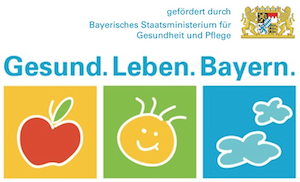GESTALT II
Implementation and evaluation of a peer-to-peer approach to the prevention of dementia within the framework of the GESTALT programme, with particular emphasis on social inequality
GESTALT (walking, playing and dancing as lifelong activities) is testing the transfer of a multimodal physical activity programme for the prevention of dementia to the practical work of prevention providers in Erlangen. Within the framework of cooperative planning group meetings, the physical activity programme was planned, implemented and evaluated together with the partners. In addition, health promotion structures were established in Erlangen. The participants with an increased risk of dementia are to be sustainably bound to an active lifestyle within the six-month intervention period.
Since autumn 2012, a second round of the GESTALT intervention has been carried out with the involvement of new participants. The focus was increasingly on the target group of socially disadvantaged, physically inactive and socially isolated people. The adult education centre in Erlangen was responsible for the project.
Brief summary
Period: 2012-2013
Project coordinator: Prof. Dr. Alfred Rütten
Project staff: Andrea Wolff and Anna Streber
Sponsor: Bavarian State Ministry of the Environment and Health within the framework of the Health Initiative Gesund.Leben.Bayern
Aims
The main aims of GESTALT are the improvement of physical, cognitive and psychosocial resources in older people, as well as the cooperative development of health promotion structures for the prevention of dementia with prevention providers from Erlangen.
Another aim is to test the transfer of the physical activity programme to the practical work of local prevention providers and to ensure the sustainability of the programme with the cooperation partners involved.
Target group
Older adults (60 plus) who have an increased risk of dementia but who have not been diagnosed with dementia. Risk factors include genetic disposition, lack of exercise, increased body weight, mild cognitive impairment (MCI), high blood pressure, decreased social contact, low educational status or depression. Spouses and relatives can also participate in the intervention.

GESTALT intervention concept
The intervention concept consists of two complementary areas, the physical activity programme and telephone counselling.
Physical activity programme
The intervention involves sustained physical involvement of the subjects. The participants should be enabled to maintain a physically active lifestyle even after the end of the intervention. The intervention currently includes an integrated physical activity programme that takes place twice a week at the Erlangen model site. This is divided into a physical training programme with a duration of 60 minutes and an integrated, moderated group discussion of 30 minutes.
The contents of the integrated training programme are based on the following topics:
- Dance and movement to music,
- Sports and games,
- Physical activity in everyday life.
The aim is to integrate cognitive, physiological and social-emotional stimulation in the participants. Through the exercises, an approximately sixty percent heart rate load of the participants is achieved.
In order to ensure that the participants continue to train independently, external providers or trainers of sports and exercise programmes are invited to the group meetings. The training group also visits sports facilities that are specialised in the training program.

Telephone coaching
The telephone counselling should support the physical involvement of the participants with regard to sustainability. It includes the creation of physical activity plans, the discussion of problems and successes as well as the teaching of action competences in relation to physical activity. The counselling takes place once a month.
Contact
Project Management Agency of GESTALT II and Contact Person for Erlangen
Volkshochschule Erlangen
Friedrichstraße 19-21
91054 Erlangen
Contact:
Ms. Uta Barusel
uta.barusel@stadt.erlangen.de
Phone: +49 (0)09131 / 86 2771
